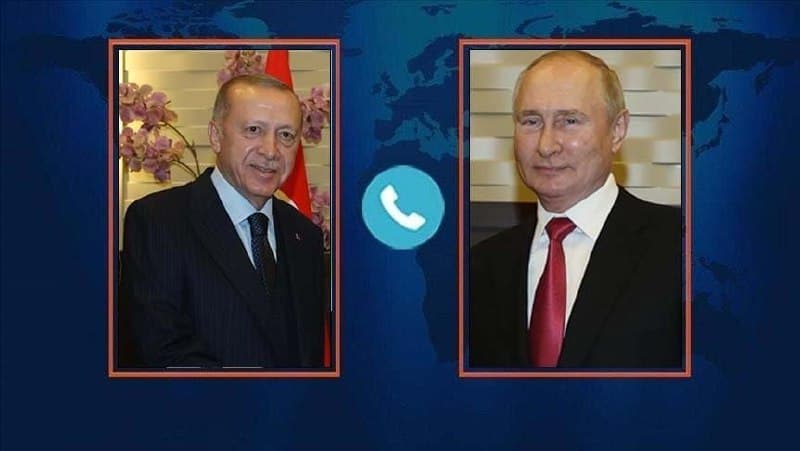#BREAKING | In a significant diplomatic move, Russian President Vladimir Putin and Turkish President Recep Tayyip Erdoğan engaged in urgent phone discussions earlier today, focusing on vital areas of cooperation amid escalating regional tensions. The talks come at a time when both leaders are under pressure to address various geopolitical challenges that have implications for both nations and the wider international community.
Critical Issues on the Agenda
The phone call, which lasted approximately 45 minutes, reportedly covered multiple pressing issues, including the ongoing conflict in Ukraine, energy cooperation, and the security situation in the Middle East. According to sources within the Turkish government, Erdoğan emphasized the importance of dialogue between Russia and Ukraine, underscoring Turkey"s role as a mediator in the crisis. This reflects Erdoğan"s previous statements advocating for peace negotiations, highlighting Turkey"s strategic position as a bridge between East and West.
In terms of energy, the leaders discussed the potential for expanded cooperation in natural gas supplies, a topic of increasing importance given the rising energy prices across Europe. Russia remains a key supplier of natural gas to Turkey, and both nations are looking to enhance their energy ties, especially in light of recent developments in global energy markets.
Why This Matters Now
The discussions are particularly significant against the backdrop of heightened tensions in Eastern Europe and the Middle East. The ongoing war in Ukraine has led to a complex web of alliances and enmities, with Turkey seeking to maintain its strategic autonomy while balancing relationships with both NATO allies and Russia. Analysts suggest that Erdoğan"s outreach to Putin is a calculated move to bolster Turkey"s position as a regional leader capable of influencing outcomes in conflict zones.
Moreover, the talks come after a series of incidents that have raised concerns about security in the region, including recent reports of increased military activity. The two leaders" dialogue could signal a potential shift towards de-escalation, as they both navigate the intricate landscape of international relations. As noted in recent developments, European leaders are closely monitoring the situation, particularly as they seek to avoid further escalation in the Ukraine conflict.
Looking Ahead: What Comes Next?
Following this critical conversation, both leaders are expected to continue their dialogue in upcoming international forums. Erdoğan is set to participate in a summit later this month that includes discussions on energy security and regional stability, where he is likely to address the outcomes of his talks with Putin. Analysts predict that Turkey will leverage its unique position to advocate for peace initiatives, potentially facilitating future negotiations between Ukraine and Russia.
As geopolitical dynamics shift, the implications of this call extend beyond bilateral relations. The international community will be watching closely to see if this engagement leads to tangible results, particularly in terms of reducing tensions and fostering cooperation in energy and security matters. With both nations facing external pressures, the outcome of this dialogue could reshape alliances and influence future policies in the region.


![[Video] Heavy clashes and gunfire reported in Baghdad, Iraq](/_next/image?url=%2Fapi%2Fimage%2Fthumbnails%2Fthumbnail-1768342239932-848qsh-thumbnail.jpg&w=3840&q=75)




![[Video] Gunfire between Iraqi security forces and Sadr militias in Baghdad](/_next/image?url=%2Fapi%2Fimage%2Fthumbnails%2Fthumbnail-1768343508874-4redb-thumbnail.jpg&w=3840&q=75)
